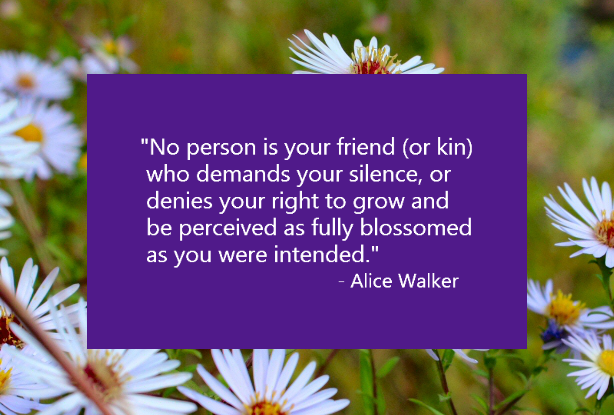I cannot agree with Shakespeare that we should kill all the lawyers. We can all learn a lot from lawyers.
Where I grew up (Miami) people didn’t hesitate to state their cases and call another person on his or her bullshit. Well, not everyone. It takes a certain amount, sometimes a lot, of strength to stand up to someone who won’t let you get a word in edgewise, is a manipulator, and is used to getting his way. My family has always been one to deal with “stuff” head on. That is how I was raised. We didn’t sweep stuff under the rug, pretend like it didn’t happen, or just put a smile on it. But not many up here in Connecticut, where I have lived for almost 14 years, deal head on with conflict.
I have lived in many different places around the country, and even a time in Italy as a child. I learned that people behave differently in different regions, that there are a variety of behavioral standards, habits, and rules dealing with conflict.
I grew up in Miami schools where it was not uncommon to have racial conflict or bullying (60s and 70s). I personally experienced both at the same time and had to stand up for myself. I learned a valuable lesson and became a much stronger person because of it (and got sent to the principal’s office for fighting back — well, worth it).
Up here in Connecticut it is very quiet and peaceful. People don’t make waves. You don’t hear people going at it with one another. As a matter of fact, it is considered rude to complain about a product or service. I have witnessed this. A woman, obviously not from “here”, had a problem with an employee at a store who was not only goofing off, but was rude to her. It was interesting to watch the crowd dynamic. This woman did not elicit one ounce of sympathy from the crowd. She was actually getting frowns and snickers because she was complaining about something in front of other people, and wasn’t shy about it. She was not behaving according to Connecticut norms and was being judged.
Now, from where I stand, she had every right to complain if this person really did treat her the way she claimed. I could tell by her accent, though, that she was not from Connecticut. She was from New York where it is not uncommon to have verbal confrontations of this sort, at least in the big cities. It is how things are worked out. Just not in Connecticut.
I have made it a habit of praising extraordinary behavior when I see it in retail situations, often calling on a manager to explain how a person went out of his or her way to do something that was beneficial to me and how much I appreciated that effort. Only two times in the entire 14 years of Connecticut residency, well, make that three times (but two of those times it was about the same person), have I complained about a service. One time I was verbally assaulted by an employee for stating that I would like some help when the employees were standing around talking (when they should have been doing their jobs — this was before I knew that you just don’t complain about service in Connecticut), and the other two times concerned my mail delivery. So when I complain, someone has done something outrageously unacceptable, in my opinion. And when it involves the US Postal Service, an institution that used to maintain a professional standard that was extraordinary, it is very serious (USPS service standards have fallen so low that they are now the joke of the nation — so very sad).
So, that very long introduction brings me to this point: sometimes it is necessary to confront another person, or a representative in an organization, about something that is unacceptable. I took the time this morning to help my 20-year-old son confront an employer over the phone who never paid him for 50 hours of work. That was so very unacceptable; I am sure no one would argue with me. The problem is that my son is not very confident yet (that confidence comes with experience and maturity), the other party is a salesman type, a manipulator who is used to getting his way — and he wouldn’t let my son speak. I had my son put this man on speaker phone and started to get his spiel. I just interrupted him (because I knew he had already given my son this speech about how he could get the blah, blah, blah by Monday, blah, blah, blah). I spoke loudly and clearly, not allowing him to interrupt me and told him he needed to have a check for $500 to my son by Friday next week. He tried to threaten us, instilling fear — yep, manipulator — but it didn’t work. I said check, full payment, thank you very much. All done.
If you stand up and be counted, from time to time you may get yourself knocked down. But remember this: A man flattened by an opponent can get up again. A man flattened by conformity stays down for good. – Thomas J. Watson
I then took the time to explain to my son about different types of people, and how it was very important to learn to identify them so you could adjust your own behavior. While it might have seemed really rude to interrupt this person, he wanted to control the conversation so that he could emotionally prevail over the young man and his mother. Did I mention that my first job was working for a lawyer? Oh, I am so very thankful for that job experience. Did I mention that my last job was working for the acting general counsel of a savings and loan institution in Austin, Texas, another lawyer, before I quit to raise my family? Again, so thankful for that job experience. You learn by watching lawyers that you can’t bullshit a bullshitter, as they say. I cannot agree with Shakespeare that we should kill all the lawyers. We can all learn a lot from lawyers.
I explained to my son that this guy is a salesman type who will say anything to get his way. They have a variety of ploys that they use, but rarely is honesty a part of their plan (though salting their narrative with truths is common). You just have to ignore what they say, make your statement, and say goodbye. By having that conversation on speaker phone, I am now a witness to him admitting to the conditions of the original work agreement, the failure of this man to keep up his end of the bargain, and his attempt to make new promises that we all knew weren’t going to happen. Push through, say your piece, and end the conversation. Oh, and create a paper trail or involve a witness in the situation in case you need to take someone to small claims court or hire an attorney. A paper trail is best, but this is a start. We have the first two checks he wrote to my son establishing employment, and now have witnesses to the agreement. See, working for lawyers really is useful. Stop cursing the lawyers, people!
Get up, stand up,
Stand up for your rights.
Get up, stand up,
Don’t give up the fight.
– Bob Marley
I told my son that he gets angry a lot at me because I see through his excuses and call him on it, but in real life this means that I can stand up for myself when necessary (boy have I had to do that a lot the last few years). I try to be polite but I will call it as I see it because that is how I was raised. Although it is always best to try to respect the customs of a region’s people, sometimes you must be true to yourself even if it isn’t popular or common practice. That is how entrenched practices are challenged and changed, by the way.
People handle conflict in different regions differently. Living in a nation of diverse races, cultures and religions we should all know this. Respecting the practices of others doesn’t mean you stop standing up for yourself when it is absolutely necessary. $500 is a lot of money, and this guy had no business not paying my son for the work my son did for him. I hope we don’t need to go to small claims court, but if we do we will. That is the next lesson in life: Follow through.
Life is full of learning opportunities, and adult children still benefit from allowing their parents to come alongside them at times. I have learned to stand up for myself — and am still learning — and feel that it is a privilege to try to teach my children to stand up for themselves as well (and that the reason people hire lawyers is that it is okay to have someone help you stand up for yourself when necessary).


 I had an unpleasant confrontation with a staff member at my college yesterday. Up to that point, absolutely everyone, including instructors and administration, have been absolutely amazing. The atmosphere on that campus is perfect for someone like me who struggles with general anxiety and chronic fatigue: calm and peaceful.
I had an unpleasant confrontation with a staff member at my college yesterday. Up to that point, absolutely everyone, including instructors and administration, have been absolutely amazing. The atmosphere on that campus is perfect for someone like me who struggles with general anxiety and chronic fatigue: calm and peaceful.  I am embarking on a new adventure: applying for grants. This is difficult for me.
I am embarking on a new adventure: applying for grants. This is difficult for me. 